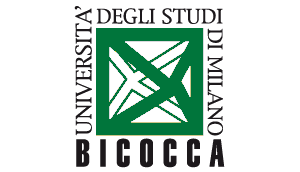Carissimi Soci SGI,
Carissimi Soci Società Associate,
su indicazione del Prof. Andrea Zanchi (Università Milano-Bicocca), vi inoltriamo il seguente messaggio relativo alle conferenze tenute dal Prof. Robert Hazen.
Cordiali saluti,
La Segreteria
Il Dipartimento di Scienze dell'Ambiente e della Terra dell'Università degli studi di Milano - Bicocca festeggerà il XXV anniversario della fondazione dell'Ateneo di Milano - Bicocca invitando in Italia il Prof. Robert M. Hazen della Carnegie Institution for Science (Washington DC, USA). Per informazioni rivolgersi al Prof. Andrea Zanchi (andrea.zanchi@unimib.it)
Il Prof. Robert Hazen terrà due conferenze a Milano Bicocca:
- 21-11-2023 Mineral Evolution: A case study of a new natural law Ore 16.30 Aula U2-2 edificio U2 "Quantum" Dipartimento di Fisica – Piazza della Scienza 2 (MI) https://forms.gle/Nhw6Kx6TmNEywgGD9 (Locandina)
- 22-11-2023 Symphony in C: On the roles of carbon in the evolution of Earth, life, and the environment Ore 10.30 Aula Magna, edificio U6 Agorà, Piazza dell'Ateneo Nuovo 1 (MI) https://forms.gle/cKm1DGRpDmTqeneA6 (Locandina)
- Giovedì 23-11-2023 alle ore 16:00, Hazen terrà la conferenza "Mineral Evolution: A case study of a new natural law" presso l'Aula G1 del Dipartimento di Scienze Biologiche, Geologiche e Ambientali dell'Università di Bologna. Per informazioni rivolgersi al Prof. Alberto Vitale Brovarone (alberto.vitaleb@unibo.it).
- Lunedì 20-11-2023 alle 16.30, il Prof. Robert Hazen terrà la conferenza "Mineral Evolution: A case study of a new natural law" nell'Aula del Consiglio del Dipartimento di Biologia dell'Università Di Napoli Federico II, per il ciclo Distinguished Lectures in Earth Sciences del Dipartimento di Scienze della Terra Ambiente e Risorse. Per informazioni rivolgersi al Prof. Donato Giovannelli (donato.giovannelli@unina.it).
Mineral Evolution: A case study of a new natural law
The diversity and distribution of Earth's minerals have changed through 4.5 billion years as a consequence of varied physical, chemical, and ultimately biological processes. "Mineral evolution," the study of this rich history of change, has led to a new mineral classification scheme that complements the official system of the International Mineralogical Association. The new "Evolutionary System" of mineralogy attempts to place every mineral species in its historical setting and formational environment. In this way, minerals provide one vivid example of a much more general natural process. Indeed, a pervasive wonder of the natural world is the evolution of varied systems, from stars to minerals to life. These evolving systems seem to be conceptually equivalent in that they display three notable attributes: (1) they form from numerous components that have the potential to adopt combinatorially vast numbers of different configurations; (2) processes exist that generate numerous different configurations; and (3) configurations are preferentially selected based on function. We identify universal concepts of selection—static persistence, dynamic persistence, and novelty generation—that underpin function and drive systems to evolve through the exchange of information between the environment and the system. Accordingly, we propose a new law, the "law of increasing functional information": The functional information of a system will increase (i.e., the system will evolve) if many different configurations of the system undergo selection for one or more functions. Mineral evolution is a revealing test case of this law.
Symphony in C: On the roles of carbon in the evolution of Earth, life, and the environment
The story of carbon is, in a very real sense, the story of everything. Carbon is the central element of our material world: shoes and handbags, cosmetics and pharmaceuticals, wooden furniture and plastic containers, glues and lubricants, and thousands of other everyday essentials are carbon-based. Almost every object you see around you has carbon atoms at its core.
Carbon is the fundamental element of life. Every molecule in your body has a carbon backbone. The air you breathe and the food you eat hold this essential element. We live on a carbon planet and we are carbon life.
And carbon is the element that lies at the heart of our uncertain, changeable environment. As humans disrupt the global carbon cycle in ways that planet Earth has never seen before, the consequences become ever more extreme and challenging to a world that must respond to changes in that critical cycle.
In these and many other ways, to know carbon is critical in knowing ourselves.

